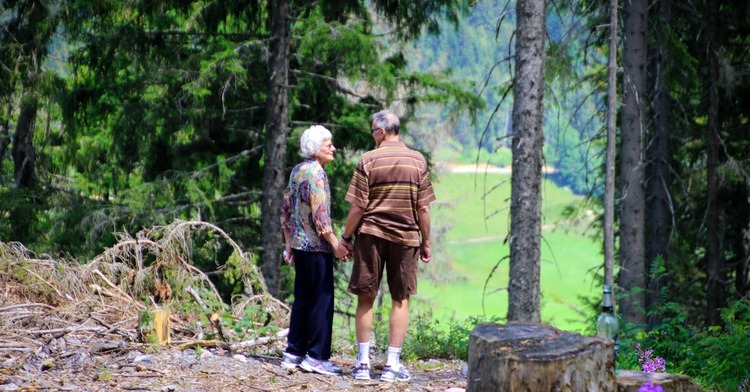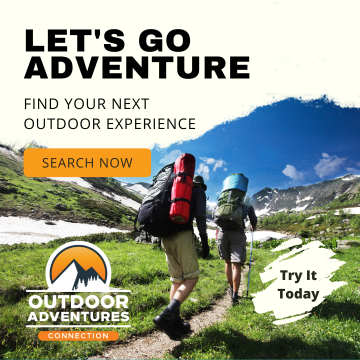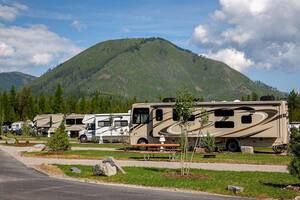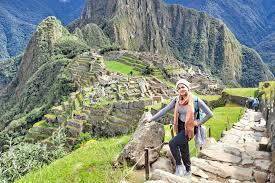
Adventure travel isn't just for the young and daring. Seniors across the globe are proving that age is just a number when it comes to exploring the great outdoors. Whether it’s hiking through national parks, kayaking on serene lakes, or cycling along scenic routes, there’s a growing movement of older adults who are embracing adventure travel as a way to stay active, engage with nature, and experience new cultures. Here’s a deeper dive into the rise of senior adventure travel and how to make the most of it.
The Rise of Senior Adventure Travel
In recent years, adventure travel among seniors has seen a significant rise. The combination of longer life expectancy, improved health, and a desire to remain active has fueled this trend. Baby boomers, in particular, are redefining retirement by prioritizing experiences over material possessions. For many, adventure travel offers the perfect blend of physical activity, mental stimulation, and social interaction.
Longer Life Expectancy and Health Improvements
Advancements in healthcare have allowed people to live longer, healthier lives. With better access to medical care, nutrition, and fitness programs, many seniors find themselves more physically capable than previous generations at the same age. This improved health has opened the door for older adults to participate in activities that might have seemed too strenuous in the past.
Redefining Retirement
Retirement used to be associated with slowing down and settling into a more sedentary lifestyle. Today, however, many seniors view retirement as an opportunity to pursue passions and hobbies they never had time for during their working years. Adventure travel allows them to explore new places, challenge themselves physically, and create lasting memories.
The Appeal of Experiential Travel
Unlike traditional travel, which often focuses on sightseeing and relaxation, adventure travel is about immersive experiences. Seniors are increasingly interested in trips that allow them to actively engage with their surroundings, whether that means hiking through remote landscapes, cycling through picturesque towns, or paddling across serene waters. These experiences offer a deeper connection to the destination and provide a sense of accomplishment.
Benefits of Adventure Travel for Seniors
1. Physical Health
Staying active is crucial as we age, and adventure travel provides an exciting way to maintain physical health. Activities such as hiking, biking, and paddling help improve cardiovascular health, strengthen muscles, and enhance flexibility. Regular physical activity can also reduce the risk of chronic diseases such as heart disease, diabetes, and arthritis.
Cardiovascular Health
Engaging in aerobic activities like hiking, cycling, and paddling can significantly improve cardiovascular health. These activities increase heart rate, improve circulation, and help manage blood pressure. For seniors, maintaining a healthy heart is essential for longevity and overall well-being.
Strength and Flexibility
Adventure activities often involve varied terrain and movements that challenge different muscle groups. Hiking uphill, cycling over long distances, or paddling for extended periods strengthens muscles and improves joint flexibility. This increased strength and flexibility can make everyday tasks easier and reduce the risk of falls.
Weight Management
Maintaining a healthy weight becomes more challenging as metabolism slows with age. Adventure travel, with its emphasis on physical activity, can help seniors manage their weight and prevent obesity-related conditions. Additionally, the combination of exercise and exposure to nature has been shown to reduce stress, further contributing to better health outcomes.
2. Mental Well-being
Adventure travel offers more than just physical benefits. It also plays a significant role in maintaining mental well-being. Exploring new environments stimulates the brain, enhancing cognitive function and memory. The sense of accomplishment from completing a challenging hike or navigating a new trail boosts self-esteem and can lead to a more positive outlook on life.
Cognitive Stimulation
Traveling to new places and learning new skills during adventure trips stimulates the brain, which is crucial for maintaining cognitive function as we age. Whether it’s reading maps, navigating trails, or learning about local flora and fauna, these mental exercises keep the mind sharp and engaged.
Stress Reduction
Being in nature has been shown to reduce stress levels and promote relaxation. The sights, sounds, and smells of the natural environment can have a calming effect, lowering cortisol levels and reducing anxiety. For seniors, who may face life changes such as retirement or loss of loved ones, adventure travel offers a healthy way to cope with stress.
Emotional Well-being
Achieving physical goals during adventure travel, such as completing a challenging hike or learning to kayak, provides a sense of accomplishment. This boost in self-esteem can lead to increased confidence in other areas of life. Additionally, the joy of exploring new places and meeting new people contributes to a more positive outlook and greater life satisfaction.
3. Social Connection
Traveling with friends, family, or in organized groups allows seniors to build and maintain social connections. These interactions are vital for mental and emotional health, providing companionship and reducing feelings of isolation. Many adventure travel companies offer group trips tailored specifically for seniors, making it easy to meet like-minded travelers.
Building New Friendships
Adventure travel often involves group activities where participants work together and share experiences. This environment fosters the development of new friendships, which can be particularly meaningful for seniors who may have fewer social connections after retirement. Traveling with others who share similar interests also provides a sense of community and belonging.
Strengthening Family Bonds
For those who prefer to travel with family, adventure trips offer a unique opportunity to strengthen bonds. Shared challenges and triumphs, such as conquering a difficult trail or navigating a river, create lasting memories and deepen relationships. Multi-generational trips, where grandparents, parents, and grandchildren all participate, can be especially rewarding.
Combating Loneliness
Loneliness is a significant concern for many seniors, especially those who live alone or have lost a spouse. Adventure travel provides an opportunity to connect with others, reducing feelings of isolation. The social aspect of travel can be just as fulfilling as the adventure itself, contributing to a more balanced and happy life.
4. Lifelong Learning
Adventure travel offers endless opportunities for learning. Whether it’s discovering the history of ancient ruins, understanding the geology of a mountain range, or learning about local wildlife, these experiences enrich the mind. Many guided tours include educational components, with experts providing insights into the cultural and natural history of the destinations.
Cultural Immersion
Adventure travel often takes seniors to destinations rich in culture and history. Whether exploring ancient ruins in Mexico or learning about indigenous cultures in Africa, these experiences provide valuable insights into the world’s diverse peoples and traditions. Such cultural immersion fosters a deeper understanding and appreciation of the places visited.
Environmental Education
Many adventure tours include an educational focus on the natural environment. For example, a guided hike through a national park may include lessons on local plant and animal species, the ecosystem, and conservation efforts. This environmental education not only enriches the travel experience but also raises awareness about the importance of protecting natural habitats.
Personal Growth
Learning new skills during adventure travel, such as rock climbing, kayaking, or wilderness navigation, challenges seniors to step outside their comfort zones. These new experiences promote personal growth, build confidence, and can lead to a greater sense of independence. The continuous pursuit of knowledge and new experiences keeps life interesting and fulfilling.
Choosing the Right Adventure
When selecting an adventure, it’s essential to consider your fitness level, interests, and comfort. Here are some popular adventure activities that are well-suited for seniors:
1. Hiking
Hiking is one of the most accessible and rewarding forms of adventure travel. From gentle walks through forested trails to more challenging mountain hikes, there are options for all fitness levels. National parks such as the Great Smoky Mountains or Zion National Park offer well-maintained trails with varying degrees of difficulty. For those new to hiking, consider joining a guided hike where an expert can provide support and insights into the local environment.
Easy to Moderate Trails
For those looking for a more relaxed experience, easy to moderate trails offer the perfect balance of activity and enjoyment. These trails typically have gentle slopes and well-maintained paths, making them accessible to seniors with varying fitness levels. Parks like Acadia National Park in Maine and Shenandoah National Park in Virginia offer such trails, with stunning views and plenty of opportunities to rest along the way.
Challenging Trails
For more adventurous seniors, challenging trails provide a rewarding experience that tests endurance and strength. These hikes may involve steeper climbs, rocky terrain, and higher altitudes. The payoff is often breathtaking vistas and a sense of accomplishment. Trails like the Angel's Landing in Zion National Park or the Half Dome in Yosemite National Park are examples of challenging yet highly rewarding hikes.
Guided Hiking Tours
For those who prefer the comfort of a structured experience, guided hiking tours offer the perfect solution. These tours provide expert guidance, ensuring safety and enriching the experience with local knowledge. Many companies specialize in tours for seniors, offering hikes that match their fitness levels and interests. The camaraderie of a group hike also adds a social dimension to the adventure.
2. Cycling
Cycling is a low-impact activity that’s easy on the joints while providing an excellent workout. Many destinations now offer dedicated cycling paths that take riders through beautiful landscapes, from coastal routes to countryside trails. E-bikes, which provide pedal assistance, are also becoming popular among seniors, allowing them to tackle longer distances and hilly terrain with ease. Consider destinations like the Netherlands or the Loire Valley in France, known for their scenic and relatively flat cycling routes.
Scenic Cycling Routes
Many regions around the world are known for their scenic cycling routes, perfect for seniors. The Danube Cycle Path in Austria, for example, offers flat, easy cycling along the river, passing through picturesque villages and historic towns. Similarly, the Pacific Coast Highway in California provides stunning ocean views along a moderately challenging route. These scenic routes allow seniors to enjoy the journey at their own pace, stopping to take in the views or explore local attractions.
E-Bikes for Added Comfort
E-bikes, or electric bikes, have become increasingly popular among seniors. These bikes provide pedal assistance, making it easier to tackle hills and longer distances. E-bikes are especially useful in more challenging terrains, such as mountainous regions or hilly countryside. Destinations like Tuscany in Italy and the Douro Valley in Portugal offer e-bike tours that combine the joy of cycling with the ease of electric assistance.
Group Cycling Tours
For those who enjoy socializing while exploring, group cycling tours offer a fantastic opportunity to meet new people while experiencing beautiful landscapes. These tours often include support vehicles, which can carry luggage or offer a ride to those who need a break. Group tours also provide a sense of security and camaraderie, as riders support each other through the journey.
3. Kayaking and Canoeing
For those who love water, kayaking and canoeing offer a peaceful way to explore lakes, rivers, and coastal areas. These activities can be as leisurely or as challenging as you like, making them ideal for seniors of varying skill levels. Coastal areas like the Outer Banks in North Carolina or the serene lakes of Minnesota provide perfect settings for paddling adventures. Guided tours are available, offering equipment and instruction for beginners.
Calm Waters for Relaxation
For a more relaxing experience, calm waters such as lakes or slow-moving rivers are ideal for kayaking and canoeing. Locations like Lake Tahoe in California or the Boundary Waters Canoe Area in Minnesota offer tranquil settings where seniors can paddle at their own pace, enjoying the serenity and natural beauty around them. These areas are also great for birdwatching and wildlife observation, adding to the experience.
Coastal Kayaking Adventures
For those seeking a bit more excitement, coastal kayaking can provide a thrilling experience. Paddling along the coastline offers stunning views, opportunities to explore hidden coves, and the chance to encounter marine life such as dolphins and seals. The San Juan Islands in Washington or the Florida Keys are popular destinations for coastal kayaking, offering a mix of adventure and relaxation.
Guided Paddling Tours
For beginners or those who prefer a structured experience, guided paddling tours are a great option. These tours provide all the necessary equipment and safety instructions, making it easy for seniors to enjoy the water without worry. Guides often share their knowledge of the local environment, pointing out interesting wildlife and explaining the area's history. Many tours also include stops for swimming or picnicking, making for a well-rounded day of adventure.
4. Wildlife Safaris
For seniors interested in wildlife, safaris provide a unique way to connect with nature. Whether it’s tracking the Big Five in Africa or birdwatching in Costa Rica, wildlife safaris can be tailored to suit different mobility levels. Many safari lodges and tour operators offer comfortable accommodations and vehicles, ensuring that participants can enjoy the experience without physical strain.
African Safaris
African safaris are the quintessential wildlife adventure, offering the chance to see iconic animals like lions, elephants, and rhinos in their natural habitats. Countries like Kenya, Tanzania, and South Africa are renowned for their safari experiences, with a wide range of options available for seniors. Many lodges and tour operators provide luxury accommodations and guided tours that prioritize comfort and safety while offering close encounters with wildlife.
Birdwatching Safaris
For those with a passion for birdwatching, destinations like Costa Rica and Ecuador offer incredible opportunities to observe rare and exotic bird species. These safaris often involve guided walks through rainforests or boat tours along rivers, allowing for up-close encounters with a diverse range of birds. The pace is typically slower, making it accessible for seniors, and the focus on observation rather than physical exertion makes it a relaxing and rewarding experience.
Accessible Safari Options
For seniors concerned about mobility, many safari lodges and tour operators offer accessible options. These include vehicles with easy entry and exit, shorter excursions, and accommodations designed with mobility in mind. Some safaris also offer fly-in options, reducing the need for long drives and allowing seniors to maximize their time in the wilderness.
5. Cultural Tours with Active Elements
Combining cultural exploration with light physical activity, cultural tours with active elements are an excellent choice for seniors who want to delve into history, art, and local traditions while staying active. Walking tours of European cities, exploring ancient ruins in Mexico, or visiting vineyards in Italy all offer enriching experiences with manageable levels of activity.
Walking Tours of Historic Cities
Walking tours of historic cities offer a wonderful way to combine culture and physical activity. Cities like Rome, Paris, and Prague are full of history, art, and architecture, all accessible by foot. These tours typically cover short distances at a leisurely pace, with plenty of stops to explore museums, landmarks, and local markets. Many tours are designed with seniors in mind, ensuring that the pace is comfortable and the itineraries are flexible.
Exploring Ancient Ruins
For seniors interested in history, exploring ancient ruins offers a fascinating glimpse into the past. Sites like Machu Picchu in Peru, Chichen Itza in Mexico, and the Acropolis in Greece are popular destinations for those who want to immerse themselves in ancient cultures. Guided tours often include educational components, helping visitors understand the significance of the ruins and the civilizations that built them.
Wine and Culinary Tours
For a more indulgent adventure, wine and culinary tours combine light physical activity with the pleasures of good food and drink. Regions like Tuscany in Italy, Bordeaux in France, and Napa Valley in California offer guided tours that include vineyard visits, wine tastings, and gourmet meals. These tours often involve short walks through vineyards or historic towns, making them accessible and enjoyable for seniors.
Preparing for Your Adventure
1. Consult with Your Doctor
Before embarking on any adventure travel, it’s important to consult with your doctor, especially if you have any pre-existing medical conditions. Your doctor can provide advice on the types of activities that are safe for you and any precautions you should take.
Health Assessment
A thorough health assessment will help determine your readiness for adventure travel. Discuss any concerns with your doctor, such as mobility issues, heart conditions, or medications that might affect your ability to participate in certain activities. Your doctor may also recommend specific exercises or physical therapy to prepare for your trip.
Vaccinations and Medications
Depending on your destination, you may need certain vaccinations or medications. For example, travel to some countries may require vaccines for yellow fever, typhoid, or hepatitis. Your doctor can advise you on what’s needed and provide prescriptions for any medications you might need during your trip.
Emergency Plan
It’s also wise to develop an emergency plan with your doctor. This plan should include information on what to do in case of a medical emergency, how to access healthcare at your destination, and a list of any medications or allergies you have. Carry a copy of this plan with you, along with any necessary contact information.
2. Choose the Right Gear
Having the right gear is essential for comfort and safety. Invest in quality footwear, especially if you’ll be hiking or walking on uneven terrain. Clothing should be appropriate for the climate, with layers that can be added or removed as needed. If cycling, ensure that your bike is properly fitted and consider using padded shorts for added comfort.
Footwear
Proper footwear is crucial for adventure travel, particularly for activities like hiking or cycling. Choose shoes that provide good support, are comfortable for long periods of wear, and have a non-slip sole for traction. If you’re hiking, consider shoes or boots with ankle support to prevent injuries on uneven terrain.
Clothing
Layering is key when it comes to clothing for adventure travel. Start with a moisture-wicking base layer to keep sweat away from your skin, add an insulating layer for warmth, and finish with a waterproof and windproof outer layer to protect against the elements. For warm climates, lightweight, breathable fabrics are best, while colder climates may require thermal layers.
Equipment
For activities like cycling or kayaking, ensure that your equipment is well-suited to your needs. If renting, choose a reputable outfitter who can provide gear that fits properly and is in good condition. Consider accessories like padded bike shorts, gloves for better grip, or a hat and sunglasses for sun protection.
3. Travel Insurance
Make sure to purchase travel insurance that covers adventure activities. This is particularly important if you’ll be traveling abroad, where medical costs can be high. Look for policies that cover emergency evacuation, trip cancellation, and medical expenses related to adventure activities.
Coverage for Adventure Activities
Not all travel insurance policies cover adventure activities, so it’s important to choose a plan that does. Look for policies that specifically mention coverage for activities like hiking, cycling, kayaking, or safaris. This coverage can include medical expenses, emergency evacuation, and even trip interruption due to injury.
Emergency Evacuation
In the event of a serious injury or illness, emergency evacuation coverage is essential. This coverage pays for the cost of transporting you to the nearest medical facility, which can be extremely expensive, especially in remote areas. Some policies also cover the cost of returning home if necessary.
Trip Cancellation and Interruption
Trip cancellation and interruption insurance provides coverage if you need to cancel or cut short your trip due to a covered reason, such as illness, injury, or a family emergency. This coverage can reimburse you for non-refundable trip costs, such as flights, accommodations, and tours.
4. Pace Yourself
Adventure travel is about enjoying the experience, not rushing through it. Listen to your body and take breaks as needed. It’s perfectly okay to skip a day of activity to rest and recharge. Many seniors find that incorporating relaxation days into their itinerary makes the adventure more enjoyable and sustainable.
Listen to Your Body
As exciting as adventure travel can be, it’s important to recognize your limits and listen to your body. Pushing yourself too hard can lead to exhaustion or injury, which can spoil the rest of your trip. If you feel tired or sore, take a break, hydrate, and rest. Most adventure tours offer flexible itineraries, allowing you to take a day off or choose a less strenuous activity if needed.
Plan Relaxation Days
Incorporating relaxation days into your itinerary can help you recharge and prevent burnout. These days can be spent enjoying the scenery, exploring local culture, or simply relaxing at your accommodations. By balancing active days with rest days, you can enjoy your adventure without feeling overwhelmed.
Enjoy the Journey
Adventure travel is not just about reaching the destination but also about enjoying the journey. Take the time to savor the experience, whether it’s soaking in the views from a mountain trail, observing wildlife in its natural habitat, or learning about a new culture. By pacing yourself and staying present in the moment, you’ll create lasting memories and enjoy a more fulfilling adventure.
Conclusion
Adventure travel for seniors is more than just a trend—it’s a movement that celebrates the spirit of exploration at any age. With the right preparation and mindset, seniors can enjoy the outdoors and embark on adventures that are both fulfilling and rejuvenating. Whether you’re hiking through a national park, cycling along a scenic route, or paddling on a tranquil lake, the possibilities are endless.
For more information on adventure travel, gear recommendations, and expert tips, visit the Outdoor Adventures Connection website at www.outdooradventures.pro. Embrace the outdoors and discover that the world is full of adventures waiting to be explored, no matter your age.

.png)

-(2).png)


.png)


.png)





-(1140-×-106-px).png)
.jpg)
Leave Comment Below